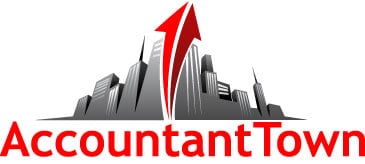Accounting Principles – Special Account Functions
While most accounts are kept for the purpose of classifying the records of financial transactions, there are certain classes of accounts which are sort of supplementary or secondary in their purpose and certain classes of accounts which have functions added to those which they originally had.
In the first class are included group accounts, summary accounts, statistical or administrative accounts, and general accounts. In the second class the most striking example is the controlling account.
A group account is one into which a number of detail accounts are closed for the purpose of determining the status of a general factor in the economic result. For example: profit and loss shows the economic result. The general factors bearing upon the result are, income from sales. cost of sales, selling expense, administrative expense, etc. The account—income from sales—is made up of various detail accounts of which there are gross sales on the credit side, and the returns together with the deductions from sales on the debit side.
A summary account, as its name implies, summarizes a series of accounts of a general nature and shows the net result in totals of the field of accounts which it covers. The profit and loss account, as above mentioned, illustrates a summary account, showing after it has been closed, on the credit side, income from sales, income from sources other than sales, and miscellaneous profits, and on the debit side cost of sales, selling expense, administrative expense, deductions from income, miscellaneous losses and withdrawals or dividends.
A statistical, or administrative account, is a group account which gathers together the information necessary to exhibit a specific result following certain transactions. Examples of this are a manufacturing account, a trading account, a contract account, showing the gain or loss on a certain contract, etc.
A general account is a bookkeeping device for balancing a number of detail accounts. It is always of an opposing tendency to the detail accounts. The keeper of a customers’ ledger, in which case the aggregate of the detail accounts would be of a debit nature, might keep his ledger in balance by running in the back of the book a general account, wherein he would post as a credit, the total of a number of debits which he had posted in detail to the individual customers’ accounts and vice versa. In so far as the items which have been furnished him are concerned, he would have no occasion to consult the controlling in the general ledger, in order to determine whether or not his ledger was in balance.
The accounts receivable account is a real account, which is an asset . It shows the amount due from customers presumably. It is quite customary for this account to have an added function, namely, that of a controlling account.
A controlling account is an account appearing in the general ledger, which reflects, in total, the condition of two or more detail accounts, of the same tendency as the controlling account. It is to be distinguished from a general account in that while it shows the same mathematical result the result is of an opposite tendency.
The prime object of a controlling account is conciseness. It is not always convenient to wait for a large number of individual accounts to be balanced in order that the result with regard to these accounts as a whole may be known. It is frequently necessary to close the general books and prepare the financial statements before the detail work of posting the underlying ledgers is completed.
In addition to conciseness, the controlling account offers an opportunity for a division of the bookkeeping work and gives the general bookkeeper at the same time an opportunity to control the detail work which he assigns to his assistants. What he does in total they are obliged to do in detail. When he makes a charge to the controlling account for sales to customers they are required to make the charges to the individual customers’ accounts. When, at the end of the month, he makes a total credit from the cash book of remittances from customers, and the other necessary entries for returns, allowances, etc., he is enabled, as soon as trial balances of the customers’ ledgers are submitted to him, to tell whether or not the assistant is doing his work faithfully and from the standpoint of mathematical results correctly. A controlling account will not prevent a bookkeeper from posting an item to a wrong account any more than systems of bookkeeping will prevent dishonesty. Neither will the controlling account discover such mistakes. It does assist in the discovery of mathematical errors, however, by offering an opportunity for the localization of the error.
As to the order in which accounts should be arranged in the general ledger, apparently, just a word is necessary. If it is definitely known that the information as to financial transactions is to be set forth in certain financial statements and that in order to convey the information intelligently and in the manner which will be most useful to the person to whom it is furnished, then it would seem that some provision should be made for getting at this information with the least possible effort. Planning is one of the essential elements of scientific management. Planning should be one of the most essential elements of scientific accounting. Columnar books were the improved machinery which made the classification of transactions possible and prevented tiresome and time-consuming analysis necessary. The proper arrangement of the accounts in the general ledger will do wonders toward facilitating the preparation of financial statements. In a word or two the rule may be thus stated: as far as possible, observe the same order of arrangement in the general ledger as that in which the results shown by the accounts will appear in the financial statements.
Access the contact form and send us your feedback, questions, etc. We are always welcome to help someone out. You can also contact us if you wish to submit your writing, cartoons, jokes, etc. and we will consider posting them to share with the world! The Facebook and LinkedIn groups are also good areas to find people interested in accounting like yourself, don’t hesitate to join as everyone of all levels are welcome to become part of the community.

